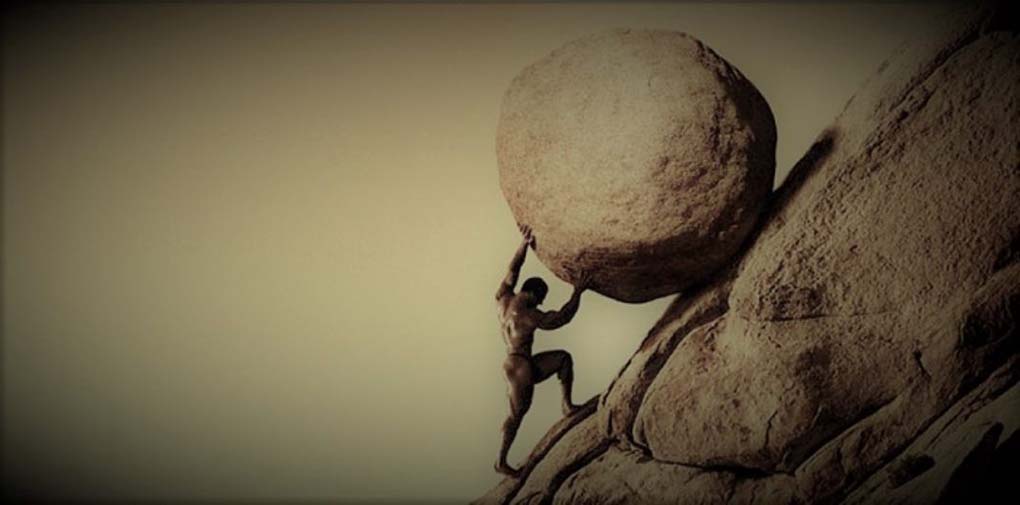In Greek mythology, Sisyphus was the first king of Corinth who challenged and questioned Olympian Gods. The arrogant and rebellious behavior of the king could not go unpunished. Eventually, the deities decided that they had enough. Yet, somehow Sisyphus managed to outsmart and avoid every conspiracy of the Olympian gods and survive. When the gods finally managed to capture the king, they decided that instead of merely killing or sending him to the underworld, they would condemn him into eternal misery and suffering. The king was forced to push and roll a giant rock up the mountaintop. Every time he managed to get the rock to the top, the enchanted rock would roll back and the king had to start all over for eternity. There was nothing Sisyphus could do to solve the problem of the stone rolling back, nowhere to run or to hide from the Olympian deities.
Imagine the agony of being trapped in reality, where one has to go through and experience the same problem every day. Now imagine the misery and suffering of being condemned to feel and experience this for eternity. That is truly a brutal punishment.
In life, when we encounter a problem, when we find ourselves tangled in a web of trouble or danger, we are driven to either solve the problem or avoid it. Sometimes we engage and invest ourselves in finding a solution. Other times, we find ourselves powerless against the calamity. In such cases, we are likely to make every effort to avoid and navigate around it. We might do this by resorting to denial that the problem exists, perhaps by trying to forget about it or simply moving on.
That deep inside, we are escapist is evident from the first few chapters of the Bible, in the story of human rebellion against God. Our first parents ran and hid instead of facing the problem, taking responsibility and addressing it. Often, we tend to do the same thing in making excuses, blaming others, trying to rationalize our decisions and actions or simply moving on as if nothing has happened.
The human ability to move on is a wonderful survival instinct. It allows us to realign and focus on our lives in the present and look forward to the future. Yet, moving on can also be a dangerous journey and decision. Sometimes, closing a particular chapter of our lives and moving from something or someone can leave us with open wounds. Wounds that will refuse to heal, wounds that can’t be healed and treated with any remedy unless we revisit and face the darkness we tried so hard to avoid and move on from.
I know and fully realize that this has been a tremendously challenging year for all of us. We had to deal with the covid pandemic, isolation, fear and uncertainty. But then on top of it, there now is also a war in our sacred fatherland. The enemy does not distinguish between a soldier and civilian, old or young, a woman or a man, and indiscriminately targets and eliminates Armenians in their homes, churches, schools and hospitals. I know each and everyone of you helped and did everything you could. I know that this takes a psychological and financial toll on you and your families. Yet, this is a moment that we also have to resist any and all subconscious assumption that we did our part, that this is all we could do, that the Armenian army will prevail, that eventually the governments and the heads of the states will step in and stop this nonsense. This is a moment that we can’t move on. Moving on is simply not an option when virtually every minute an innocent life is lost, when a young eighteen-year-old sacrifices his life for our beloved Artsakh. My dear brothers and sisters, at this sacred and decisive moment where the very existence of the Armenian nation and identity is in question, I appeal to your kindness and generosity to stand with our brothers and sisters in Artsakh. Let us continue to pray unceasingly, donate tirelessly, embrace and cherish our unity so that Armenians can live, laugh and love again in Artsakh.


